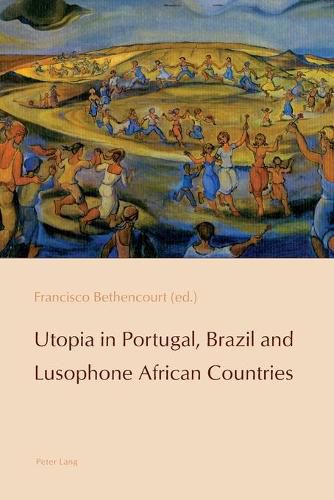Readings Newsletter
Become a Readings Member to make your shopping experience even easier.
Sign in or sign up for free!
You’re not far away from qualifying for FREE standard shipping within Australia
You’ve qualified for FREE standard shipping within Australia
The cart is loading…






This title is printed to order. This book may have been self-published. If so, we cannot guarantee the quality of the content. In the main most books will have gone through the editing process however some may not. We therefore suggest that you be aware of this before ordering this book. If in doubt check either the author or publisher’s details as we are unable to accept any returns unless they are faulty. Please contact us if you have any questions.
This book studies the history, literature and culture of Portuguese-speaking countries through the lens of utopia. The role of utopia in Portuguese literature is the object of fresh analyses ranging from Camoes to Goncalo M. Tavares, and Antonio Vieira to Jose Saramago. The chapters on Angola and Mozambique show how national identity received a major boost through utopian literature - Pepetela is the anchor in the former case, while dance is used as a crucial metaphor to reveal the tension between the colonial and postcolonial gaze in the latter case. The visions of paradise in Tupi tradition and missionary doctrine inform the approach to Brazil, developed by the study of the utopian dimension of the revolts of Canudos and Contestado. Regional contrasts and the quest for Brazilian national identity underlie the chapter on the cinema of Glauber Rocha and Walter Salles. These political and cultural acts can be compared to the strange case of Sebastianism in Portugal, here studied across four centuries of adaptation and transformation. Anarchist, Communist and Catholic political projects are analysed in the context of the early twentieth century to complete this evaluation of the uses and effects of utopian visions in these countries.
$9.00 standard shipping within Australia
FREE standard shipping within Australia for orders over $100.00
Express & International shipping calculated at checkout
This title is printed to order. This book may have been self-published. If so, we cannot guarantee the quality of the content. In the main most books will have gone through the editing process however some may not. We therefore suggest that you be aware of this before ordering this book. If in doubt check either the author or publisher’s details as we are unable to accept any returns unless they are faulty. Please contact us if you have any questions.
This book studies the history, literature and culture of Portuguese-speaking countries through the lens of utopia. The role of utopia in Portuguese literature is the object of fresh analyses ranging from Camoes to Goncalo M. Tavares, and Antonio Vieira to Jose Saramago. The chapters on Angola and Mozambique show how national identity received a major boost through utopian literature - Pepetela is the anchor in the former case, while dance is used as a crucial metaphor to reveal the tension between the colonial and postcolonial gaze in the latter case. The visions of paradise in Tupi tradition and missionary doctrine inform the approach to Brazil, developed by the study of the utopian dimension of the revolts of Canudos and Contestado. Regional contrasts and the quest for Brazilian national identity underlie the chapter on the cinema of Glauber Rocha and Walter Salles. These political and cultural acts can be compared to the strange case of Sebastianism in Portugal, here studied across four centuries of adaptation and transformation. Anarchist, Communist and Catholic political projects are analysed in the context of the early twentieth century to complete this evaluation of the uses and effects of utopian visions in these countries.